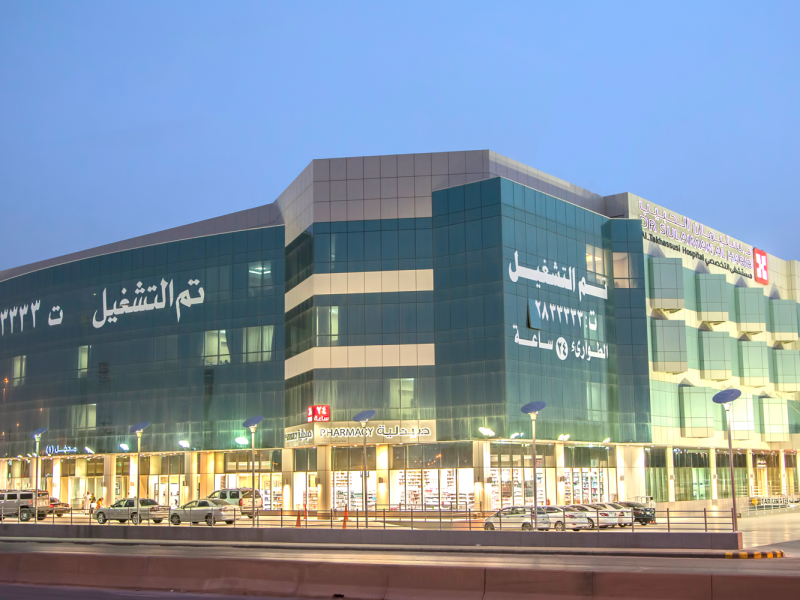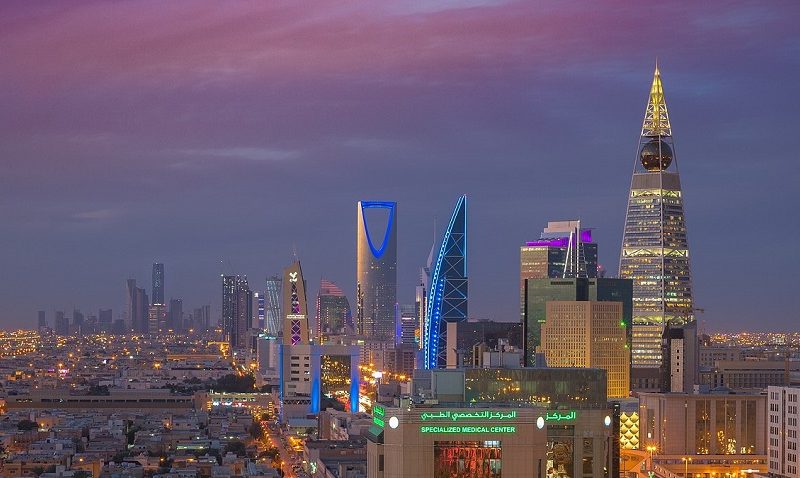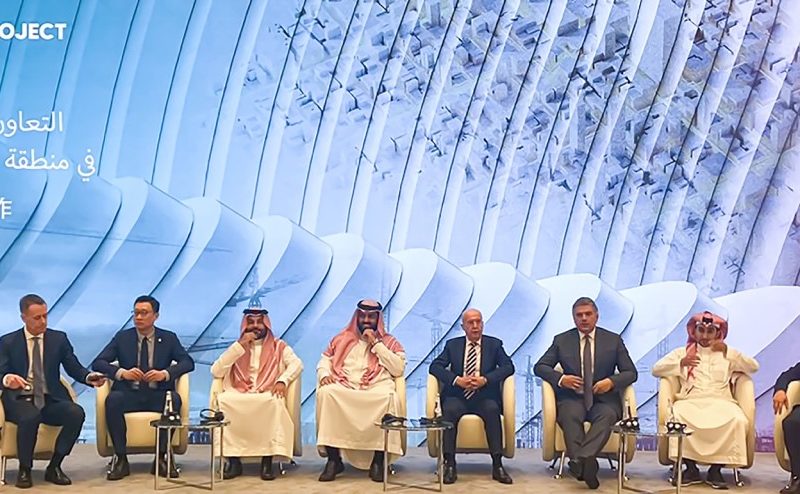Saudi Arabian sovereign wealth vehicle Public Investment Fund (PIF) has signed a joint venture agreement with US-based AeroFarms to establish a company in Riyadh for the construction and operation of indoor vertical farms in Saudi Arabia and the wider Middle East and North Africa (MENA) region.
The agreement focuses on the optimal utilisation of natural resources, including water and agricultural lands, through the implementation of indoor vertical farming, with no need for arable land.
It is expected to result in significantly higher yields and use up to 95% less water versus traditional field farming.
READ MORE: Emirates to build ‘world’s largest’ vertical farm in Dubai
AeroFarms will deploy its proprietary smart agriculture technology (agtech) platform to build vertical farms in Saudi Arabia.
The joint venture will also build and operate several farms across the MENA region in the next few years.
The first farm in Saudi Arabia is expected to be the largest indoor vertical farm of its kind in the MENA region.
PIF and AeroFarms’ facility in Saudi Arabia will have an annual production capacity of up to 1.1 million kgs of agricultural crops.
PIF and AeroFarms’ Saudi Arabia strategy
The partnership is said to align with PIF’s strategy for developing and enabling the capabilities of the food and agriculture sectors.
PIF aims for growth in these economic segments to contribute to improving trade balances, localising technologies, developing industries and growing and diversifying the Saudi economy.
“The agreement with AeroFarms will lead to the establishment of indoor vertical farms in Saudi Arabia and the wider MENA region,” said Majed AlAssaf, head of consumer goods and retail at PIF’s MENA Investments Division.
AlAssaf said the deal will help increase “regional reliance on locally produced, high-quality crops grown in a sustainable way using the latest technologies”.
He added: “PIF is enabling the growth of the food and agriculture sector and localising technology that can benefit private sector industry participants.”
AeroFarms: Abu Dhabi and beyond
AeroFarms announced plans in April 2020 to build the world’s largest R&D indoor vertical farm in Abu Dhabi. Spending in AeroFarms was confirmed as part of a $100 million agtech investment by Abu Dhabi Investment Office (ADIO) in four companies.
ADIO is a government office aimed at growing foreign investments in Abu Dhabi.
READ MORE: Largest indoor farm in the world to be developed in Abu Dhabi
AeroFarms’ deal with PIF to build vertical farms in Saudi Arabia marks the next step in its MENA operations. David Rosenberg, co-founder and CEO of the company, says AeroFarms is keen to “solve the greatest agriculture challenges and increase food resiliency around the world”.
He added: “We are excited to partner with PIF to build our first large-scale commercial farm in Saudi Arabia, where the growing conditions are challenging with limited access to fresh water and arable land. We envision building together smart indoor vertical farms throughout the broader MENA region.”
AeroFarms’ Abu Dhabi project
Construction started on AeroFarms’ R&D centre in Abu Dhabi in June 2021.
AeroFarms AgX, company’s wholly owned subsidiary in the UAE, is behind the development.
READ MORE: Dubai Industrial City to host 9,290m2 indoor vertical farm
At 54,000 square feet, AeroFarms AgX was at the time promoted as the largest indoor vertical farm of its kind for research and development in the world.
Its employee capacity is projected to include 60 highly skilled engineers, horticulturists and scientists.
What is the meaning of agtech in agriculture?
Agtech refers to technology aimed at improving efficiencies in the agricultural supply chain. According to a Deloitte paper, innovation fields within which agtech startups are growing include:
- Value chain rerouting: for example, companies offering meal kits and food e-commerce);
- Crop efficiency technology: start-ups and cross-industry innovators offering drones, robots, big data and irrigation, soil, and crop technologies to increase yield;
- Bio-chemicals and bio-energy: firms aiming to reduce the ecological footprint of agricultural processes;
- Artificial meat and alternative protein producers, and;
- Contained and vertical farming firms developing, among other assets, smart greenhouses





